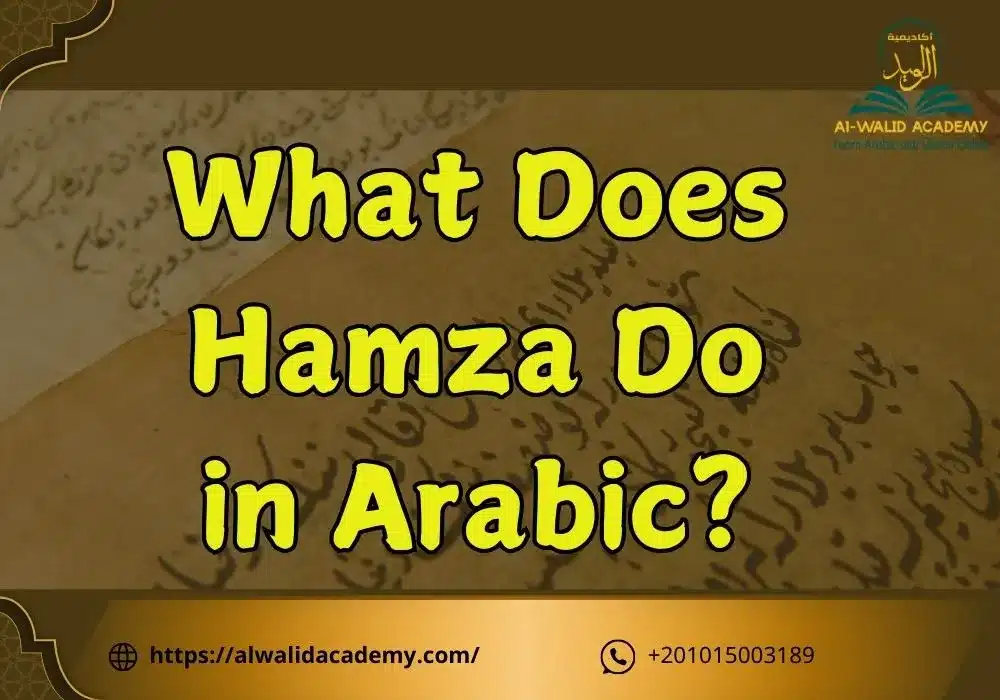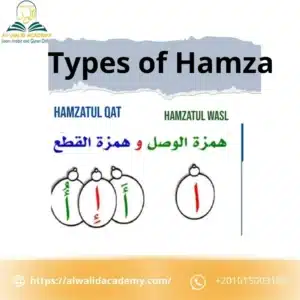You will have the answer to “What does Hamza do in Arabic?” Once you look at how the word “mittens” is pronounced in English in two ways, you can hear it with the letter “t” and without it in casual spoken English. The sound that is used instead of the letter “t” is the exact sound of Hamza in Arabic. Interested to learn more about Hamza? Read out this blog that covers all your questions in a simplified way.
What Does the Hamza Symbolize?
Hamza in Arabic symbolizes the sound of a glottal stop that you can hear in casual spoken English. This is a letter in the Arabic language that can be written like that “ ء” and takes many forms, as you can see it separated or with the letters “ و or ا” according to its position in a word and the surrounding letters. Hamza’s pronunciation is close to the letter “A,” however, it’s not a vowel. The way of writing Hamza is similar to the way of writing the letter “ع” but without the lower part of it.
Despite the fact that Hamza hasn’t been considered one of the 28 “full” letters, some scholars consider Hamza an essential letter in the Arabic alphabet that can be studied before the first letter in the Arabic alphabet or after the letter “ي.”
How to Pronounce Hamza in Arabic
The letter hamza is the equivalent of the glottal stop of the English language, which comes from the bottom of the throat. You can pronounce it by closing your vocal cords and then opening them. Keep in mind, while producing it make its sound soft.
Now, it is time to familiarize your tongue to pronounce it:
- Try to pronounce the word “رأس,” which means head. You can pronounce it like “ra’s.”
- This word has Hamza in the end of it, which can be a bit challenging. Try to pronounce “ماء,” which means water. You can pronounce it like “mā’.”
- Let’s take a word that starts with Hamza, like “أكل,” which means “he ate.” It can require more effort to pronounce it as it’s not usual to start any word with a glottal stop in English. You can pronounce it like “ ‘akala.”
When you try to produce sounds that don’t exist in your native language, the matter sounds overwhelming in the beginning. However, you can master it rapidly with regular rehearsing. After a few training sessions, you will be able to pronounce the words smoothly without struggles. Find more applications on Arabic sounds in our engaging Quran Recitation Course that enables you to master the Holy Quran recitation and level up your Arabic skills.
The Importance of Hamza in the Quran
Hamza enables you to read the Holy Quran correctly with proper Tajweed rules, as you can see Hamza multiple times within the same page. To grasp this point, take a look at this Quranic text from Surah Al-Anaam:
هُوَ الَّذِي خَلَقَكُم مِّن طِينٍ ثُمَّ قَضَىٰ أَجَلًا ۖ وَأَجَلٌ مُّسَمًّى عِندَهُ ۖ ثُمَّ أَنتُمْ تَمْتَرُونَ (2) وَهُوَ اللَّهُ فِي السَّمَاوَاتِ وَفِي الْأَرْضِ ۖ يَعْلَمُ سِرَّكُمْ وَجَهْرَكُمْ وَيَعْلَمُ مَا تَكْسِبُونَ (3) وَمَا تَأْتِيهِم مِّنْ آيَةٍ مِّنْ آيَاتِ رَبِّهِمْ إِلَّا كَانُوا عَنْهَا مُعْرِضِينَ (4) فَقَدْ كَذَّبُوا بِالْحَقِّ لَمَّا جَاءَهُمْ ۖ فَسَوْفَ يَأْتِيهِمْ أَنبَاءُ مَا كَانُوا بِهِ يَسْتَهْزِئُونَ (5) أَلَمْ يَرَوْا كَمْ أَهْلَكْنَا مِن قَبْلِهِم مِّن قَرْنٍ مَّكَّنَّاهُمْ فِي الْأَرْضِ مَا لَمْ نُمَكِّن لَّكُمْ وَأَرْسَلْنَا السَّمَاءَ عَلَيْهِم مِّدْرَارًا وَجَعَلْنَا الْأَنْهَارَ تَجْرِي مِن تَحْتِهِمْ فَأَهْلَكْنَاهُم بِذُنُوبِهِمْ وَأَنشَأْنَا مِن بَعْدِهِمْ قَرْنًا آخَرِينَ(6)
(2) It is He who created you from clay and then decreed a term[291] and a specified time [known] to Him;[292] then [still] you are in dispute.
(3) And He is Allāh, [the only deity] in the heavens and the earth. He knows your secret and what you make public, and He knows that which you earn (4) And no sign comes to them from the signs of their Lord except that they turn away therefrom.(5) For they had denied the truth when it came to them, but there is going to reach them the news of what they used to ridicule.(6) Have they not seen how many generations We destroyed before them which We had established upon the earth as We have not established you? And We sent [rain from] the sky upon them in showers and made rivers flow beneath them; then We destroyed them for their sins and brought forth after them a generation of others.
How many Hamza have you seen within these verses? About 15 times Hamza is written which makes you need to understand how to read it correctly and learn its rules, consequently, you can recite the Holy Quran without pauses or mistakes.
Our Online Noorani Qaida Course in Al-Walid Academy ensures correct pronunciation for each letter and how to produce the sounds smoothly as well as Arabic-native speakers.
What Does Hamza Do in Arabic?
The letter Hamza is like any other letter in the Arabic alphabet, it produces sound, the glottal stop, which is crucial to help us read correctly any Arabic text. Likewise the rest of the Arabic alphabet, it has different shapes and pronunciations depending on its Tashkeel, which determines its form whether to place Hamza on the letter alif, waw, yaa, or on the line. Hamza is distinct in the Arabic language as there is no other letter that is close to it in pronunciation; it’s an important letter in the Arabic alphabet, specifically, if you are in the beginning of your journey with learning the Arabic language. Some Arabic language scholars recommend that you start memorizing the Arabic alphabet with the letter “Hamza” because of its importance that can be overlooked. Hamza can help you distinguish the tense of the sentence and its type, aside from clearing up the meanings among similar words.
You can find What is The Best Way To Learn Arabic Vocabulary helpful.
Types of Hamza
We have in Arabic only two types of Hamza, one of them constantly makes the sound we have mentioned “glottal stop” and the other one can make it and most times it doesn’t. In addition to some differences in the way of writing each of them. Therefore, understanding them helps you write and pronounce them properly. The two primary types of Hamza are Hamzat al-Qata and Hamzat al-Wasl, which have clear differences that enable you to distinguish each one of them rapidly.
1. Hamzat al-Wasl
Hamzat al-Wasl means the connecting Hamza, which indicates an important fact about it: the connecting makes the sound of glottal stop disappear. Well, let me demonstrate, that Hamzat al-wasl can make sound only at the beginning of words. So, connecting Hamza isn’t pronounced when it comes in the middle between two words and connects the letter before it to the letter after it. It’s not written and just the letter alif “ا” which is written without Hamza.
For more clarification, let’s examine the following example:
We have the word “اسم” which means “name,” when it comes in the beginning, we pronounce it like “Esm” with a glottal stop in the beginning. But, in the word “باسم” we don’t pronounce it at all and pronounce this word like “bsm” without a glottal stop.
Hamzat al-Wasl comes in determined situations, such as:
With the Arabic definite article (الـ) that means “the,” like “الكتاب، المدرسة.”
Imperative verbs, like “اذهب، البس، اشرب.”
We have in Arabic ten specific nouns that begin with Hamzat al-wasl, they are:
- اِبن (ibn) that means son.
- ابنة (ibna) that means daughter.
- ابنان (ibnan) means two sons.
- ابنتان (ibnatan) that means two daughters.
- اثنان (ithnāni) that means two.
- اثنتان (ithnatāni) that means two but for feminine.
- اسم (ism) that means name.
- امرؤ (imru’u) that means man.
- امرأة (imra’ah) that means woman.
- ايْمُ الله (aymu Allāh) that means by Allah SWT.
Plus, there are some nouns that start with Hamzat al-wasl, like “ابتسام” or “امتحان.”
2. Hamzat al-Qata
It’s also called cutting Hamza as it cuts the sounds of words with the glottal stop it has, unlike the connecting Hamza which connects them smoothly without stops. It’s written as (أ or إ) and can appear at the beginning, middle, or end of a word and be pronounced in each position of it.
You can see it in various situations:
- In letters, like “إن، أو، إلا”.
- The interrogative form of a verb to make a question with yes or no answers, such as “أذهبت؟ أصليت؟ أشربت” they means “Do you eat/ drink/ pray?”
- In addition to existing in some names, like “أحمد، إيمان، أشرف، أمل”
- Many pronouns, like “أنت، أنتِ، أنتم.”
- Verbs that are in past tense, like “أكل، أرسل، أخذ.” You can find it also in some verbs in the present tense, such as “أستعمل.”
With some practice, you will be able to distinguish between them for flawless writing. Where you can find it in Arabic Foundation Course.
Different Forms of Hamza
Hamza doesn’t take the same shape in all positions, but according to some rules you can see the different forms of Hamza: (أ/ ـئـ / ـؤ/ ء.) We can divide them into three forms, they are:
The Initial Hamza
It should be above or under the letter alif, diacritics determine the form of the initial Hamza. When it’s marked by Fattah or Dammah, Hamza will be above alif, like the words “أحب، أكل.” If it has Kasra, we place Hamza under alif, “إحسان، إسلام.”
The Medial Hamza
With medial Hamza, we have three options:
أ ـئـ ؤ
We place it in any of them depending on the Tashkeel of the prior letter:
- If the prior letter is marked with Fattha, we place Hamza on alif, like “سأل.”
- If the prior letter is marked with Kasrah, we place Hamza on a line, like “بئر.”
- If the prior letter is marked with Dammah, we place on the letter و, like “تفاؤل.”
Enhance your Arabic language skills with the comprehensive Arabic and Quran Courses from Al-Walid Academy.
The Final Hamza
The same rules of the medial Hamza can be applied here as well. We place them in one of these positions: أ ئ ؤ ء
- If the prior letter is marked by Fattah, we place it on alif, like ملجأ
- If the prior letter is marked by Dammah, we place it on waw, like بؤبؤ.
- If the prior letter is marked by Kasra, we place it on yaa, like مساوئ.
Notably, if the letter that comes before Hamza is one of the long vowel letter “ا،ي،و” or Sukoon, Hamza will be written on the line in this way (ء), like جاء.
The Difference Between Hamza and Alif
Alif is a long vowel letter, we have in the Arabic language short vowels, which are Fattha, Damma, and Kassra. And the long vowels, which are the letters “ا، ي، و”, make long sounds. Alif has the sound of short a, like “سحاب.” So, alif says /aaa/ while Hamza says the glottal stop. Alif’s sound is produced by opening your mouth widely for three seconds, coming from an empty part of the mouth and the throat. Hamza doesn’t require opening your mouth or producing a long sound, on the contrary, its sound is so fast, produced by closing the vocal cords and rapidly opening them. Hamza can be marked by Diacritical marks, while alif can’t.
The difference between them in the shape can be easily observed, as alif is like a straight stick without any marks and can’t come in the beginning of the sentence, or in the middle of the end.
Hamza can come in the beginning, middle, or end of a word with three forms, which we have discussed in detail earlier. Enrich your knowledge with Al-Walid Academy which offers Learn Arabic And Quran Online in engaging and the latest methods.
Want to REALLY Master Hamza?
With ongoing practice and structured lessons, you’ll be able to distinguish the different types and forms of Hamza to ensure correct writing and flawless speaking. At Al-Walid Academy, you take full advantage of an Arabic language Course that offers a comprehensive approach to learning Arabic grammatical rules and sounds in a simplified way to guarantee you an engaging and knowledgeable experience.
We focus in Al-Walid Academy on the practical application after any piece of information that is presented to grasp and memorize simultaneously.
Our pro tutors teach Hamza step by step, emphasizing a good grasp of each point before turning to the next one. Therefore, you will learn how to pronounce Hamza, differ in its types, write it correctly in any position in a word, and read it smoothly and effortlessly.
All these features can be enjoyed in a fun and engaging learning environment, allowing you to master the Arabic language effortlessly. Don’t miss out! Enroll in the course and secure your place today!
Conclusion
Hamza can be challenging even for Arabic-native speakers who have studied it thousands of times in school and college, so don’t feel disappointed when you struggle with it in the beginning. You will quickly become proficient in it if you commit to consistent training, extracting words with Hamza from the Holy Quran and practicing them.
Related Articles:



